Page Contents
If you are a medical student who aspires to get a medical career in the UK, you must familiarize yourself with the process and the pathways you can take to get yourself there. All the pathways that would lead to you practising medicine in the UK will ultimately require you to get a GMC registration and that is what this article is centered around. Sit back and know where you stand and hopefully by the end of this article you will know what you have to do to get to the UK and practice your career there. We will start with a brief introduction about GMC. Note that there are links to all the technical terms at the end of the article that you might not have understood so do not worry. Just read on.
GMC (General Medical Council)
GMC is a public body that basically maintains a register of every medical practitioner in the UK. They decide who gets to be registered (Provisional or general) and who should be knocked out due to genuine reasons. They are the governing body of the health standards in the UK. Their selection of medical practitioners makes for better health standards due to better doctors. They even put the standard for medical schools in the UK. Claiming a false GMC registration is a criminal act. Membership with the GMC provides its members with great privileges. The GMC is supported (paid) by its members. It was founded even before antibiotics were discovered. The main point? Only those that are registered can act as physicians, surgeons or medical officers in any NHS (National health service) hospital, Army, or any other registered body.
Pathways for IMGs to get GMC registration
There are a lot of pathways for IMGs to get GMC registration and gain a legal license to practice medicine in the UK. All of which are listed below but each pathway has one thing in common. THE ENGLISH LANGUAGE SKILLS.
The English language tests accepted in the UK are
- IELTS (at least 7.0 in each band and 7.5 overall) the results are valid only for TWO years.
- OET (Occupational English Test), must have taken the medicine version of the test and taken at least grade B in each testing area (speaking, writing, reading, and listening)
Remember the English language test is almost necessary for every program in the UK
After this, we move on to the real exams.
PLAB (Professional and Linguistic Assessments Board)
This is the most common pathway any IMG would rely on. Basically, This is a 2 part test. Even after passing both parts, you will only get a provisional GMC registration (temporary). After which you have to complete a clinical internship to get a general registration (permanent). You can get a permanent GMC registration also if you have already attended
- Foundation year 1 (F1) in the UK OR
- Had 12 months of clinical rotations outside the UK after graduation (3 months in medicine and 3 in surgery necessary)
- Had 18 months of clinical rotations outside the UK after graduation (6 months in medicine and 6 in surgery necessary)
- Not more than a 1-year gap between your last clinical rotation and the day you apply for general registration
A detailed information about the test format, dates, procedure and fee of the Plab tests is given below.
You can take this test (PLAB 1 and 2) during your medical school or after that.
The GMC is planning to get rid of the PLAB exams and introduce the MLA (Medical licensing exam) in the UK. This is scheduled to occur after 2022 so no need to worry till then.
Acceptable Post-Graduate Qualifications for GMC registration
You can apply for a general GMC registration (permanent) If you are a postgraduate from any of these UK awarded degrees
| Awarding Body | Qualification |
|---|---|
| Royal College of Emergency Medicine | Membership of the College of Emergency Medicine (MCEM/MRCEM) |
| Royal College of Anaesthetists | Primary FRCA examination |
| Royal College of Obstetricians and Gynaecologists | Membership of the Royal College of Obstetricians and Gynaecologists (MRCOG) |
| Royal College of Paediatrics and Child Health | Membership of the Royal College of Paediatrics and Child Health |
| Royal College of Pathologists | Fellowship of the Royal College of Pathologists (FRCPath) by examination only |
| Royal College of Physicians and Surgeons of Glasgow | Fellowship of the Royal College of Physicians and Surgeons of Glasgow (FRCS Glasg Ophthalmology) |
|
Royal College of Physicians London Royal College of Physicians Edinburgh Royal College of Physicians and Surgeons of Glasgow |
Membership of the Royal College of Physicians MRCP (UK) |
| Royal College of Psychiatrists | Membership of the Royal College of Psychiatrists (MRCPsych) |
| Royal College of Radiologists | Fellowship of the Royal College of Radiologists (FRCR) |
| Royal College of Surgeons Edinburgh | Membership of the Royal College of Surgeons of Edinburgh (MRCS Ed Opthalmology) |
|
Royal College of Surgeons of England Royal College of Surgeons of Edinburgh Royal College of Physicians and Surgeons of Glasgow |
Any of the following:
|
Post Graduate Qualifications Acceptable Outside the UK for GMC registration
If you are a post-graduate from outside the UK then you are eligible to apply for a general GMC registration if you are awarded the following degrees
| Country | Awarding Body | Qualification |
|---|---|---|
| America | American Board of Pediatrics (ABP) | Diplomate of the American Board of Pediatrics – General Pediatrics |
| America | American Board of Anaesthesiology | Certificate of the American Board of Anaesthesiology |
| America | The American Board of Radiology | The American Board of Radiology diagnostic radiology examination |
| Australia/New Zealand | Australian and New Zealand College of Anaesthetists | Fellowship of the Australian and New Zealand College of Anaesthetists |
| Australia/New Zealand | Royal Australasian College of Physicians |
FRACP Adult medicine or evidence of three years of basic training (PREP) + achievement of RACP written and clinical examinations OR FRACP Paediatrics or evidence of three years basic training (PREP) + achievement of RACP written and clinical examinations |
| Australia/New Zealand | The Royal Australian and New Zealand College of Radiologists |
Fellowship of The Royal Australian and New Zealand College of Radiologists (FRANZCR) (Clinical Radiology) Fellowship of The Royal Australian and New Zealand College of Radiologists (FRANZCR) (Radiation Oncology) |
| Bangladesh | Bangladesh College of Physicians and Surgeons | Fellowship in Anaesthesia or Anaesthesiology awarded since July 1999 |
| Canada | The Royal College of Physicians and Surgeons of Canada | The Royal College of Physicians and Surgeons of Canada – diagnostic radiology examination |
| Europe | European Academy of Anaesthesiology or European Society of Anaesthesiology | European Diploma in Anaesthesiology and Intensive Care |
| Hong Kong | Hong Kong College of Physicians | Membership of the Hong Kong College of Physicians |
| Ireland | Royal College of Surgeons in Ireland |
MRCS (collegiate examination) MRSCI (intercollegiate examination) Fellowship of the Royal College of Surgeons Ireland Fellowship of the Faculty or the College of Anaesthetists of the Royal College of Surgeons in Ireland |
| Ireland | College of Anaesthetists of Ireland | Fellowship of the Faculty or the College of Anaesthetists [of the Royal College of Surgeons in Ireland1] |
| Ireland | Royal College of Physicians in Ireland | MRCP Medicine (Medicine of Childhood) |
| Malaysia | Ministry of Health |
Master of Medicine (MMED) Malaysia with MRCP (UK) awarded since 1 July 2010 This must include four years of clinical experience (required to complete MMED) plus two years of training |
| Pakistan | College of Physicians and Surgeons Pakistan |
FCPS Paediatrics Pakistan Fellowship in Anaesthesiology awarded since1998 |
| Singapore | National University of Singapore |
Master of Medicine (Paediatrics) Master of Medicine (Internal Medicine) including MRCP (UK) |
| Singapore | Joint Committee on Specialist Training Singapore | Master of Medicine (MMED) Singapore, plus MRCP (UK) awarded since 1 July 2010 |
| South Africa | College of Anaesthetists of South Africa |
Fellowship of the College of Anaesthetists of South Africa FCA (SA) |
| South Africa | Colleges of Medicine of South Africa | Fellowship of the College of Radiologists of SA FC Rad Diag (SA) – Diag Rad awarded after 1 October 2013 |
| Sri Lanka | University of Colombo, Sri Lanka |
Doctor of Medicine or MD (Anaesthesiology) Doctor of Medicine or MD, (Obstetrics and Gynaecology) Doctor of Medicine or MD, (Paediatrics) Doctor of Medicine or MD (medicine) awarded after January 2017 |
| West Africa | West African College of Physicians | Fellowship of the West African College of Physicians (Paediatrics) |
| West Indies | University of the West Indies |
Doctor of Medicine (Anaesthesia) awarded since September 2003 (Course title has since changed to Doctor of Medicine (Anaesthesia and Intensive care)) |
T
hese qualifications are not taken as equivalent to the UK (MRCP) in every aspect. They are only acceptable in the UK for application of full GMC registration (general). If your post-graduation qualification is not listed, You have to take the MRCP exam or PLAB.

Applying For GMC registration Through A Recognized Sponsor
You can apply for a general GMC registration (permanent) in the UK through a sponsor. You have to convince the sponsor that the knowledge and skills you have to meet those of the doctors in the UK. The necessary requirement for each sponsor is that you should have at least 3 years of clinical practice out of your last five years (including the recent 12 months). There are specific sponsors listed below ONLY, that can provide you with a general GMC registration.
| Approved sponsoring body |
|---|
| Alder Hey International Fellowship Scheme (Anaesthetics) |
| Canterbury Christ Church University |
| Commonwealth Scholarship Commission |
| Department of Surgical Sciences, University of Oxford |
| Dudley Group NHS Foundation Trust |
| Edge Hill University and Wrightington, Wigan & Leigh NHS Trust – International Training Fellowships in MCh programmes |
| ENT UK – Royal College of Surgeons |
| Great Ormond Street Hospital International Fellowship Programme |
| Guy’s & St Thomas’ – Intensive Care |
| Guy’s & St Thomas’ – Oncology |
| Guy’s & St Thomas’ – Pain Management |
| Guy’s & St Thomas’ NHS Trust (Obstetrics and Gynaecology) |
| Harefield Hospital, Royal Brompton & Harefield NHS Trust |
| Hertfordshire Partnership University NHS Foundation Trust |
| Imperial College Healthcare NHS Trust – Haematology |
| Imperial College, London |
| Imperial College, London – Emergency Medicine |
| Imperial College, London – Intensive Care Medicine |
| Institute of Psychiatry, London |
| King’s College Hospital (Critical Care) |
| Lysholm Dept of Neuroradiology – National Hospital for Neurology and Neurosurgery, UCL |
| Manchester University Foundation Trust |
| Midlands Partnership NHS Foundation Trust |
| NHS Health Education West Midlands |
| Norfolk and Norwich University Hospital |
| North West London Foundation School |
| Northumberland Tyne and Wear Psychiatry Fellowship Programme |
| Royal College of Anaesthetists |
| Royal College of Emergency Medicine |
| Royal College of Emergency Medicine – Overseas Development Scheme/Work, Learn and Return |
| Royal College of Obstetricians & Gynaecologists |
| Royal College of Ophthalmologists |
| Royal College of Paediatrics & Child Health |
| Royal College of Pathologists |
| Royal College of Physicians of Edinburgh |
| Royal College of Surgeons of England |
| Royal College of Physicians of London |
| Royal College of Physicians and Surgeons of Glasgow |
| Royal College of Psychiatrists |
| Royal College of Radiologists – Clinical Radiology |
| Royal College of Radiologists – Clinical Oncology |
| Royal College of Surgeons of Edinburgh |
| Royal Devon and Exeter NHS Trust |
| Royal Wolverhampton Trust – Clinical Fellowship Programme |
| University of Buckingham School of Medicine |
| University Hospital Birmingham NHS Foundation Trust |
| University Hospitals Coventry & Warwickshire NHS Trust |
Specialist or GP (General Practitioner) GMC Registration
Doctors who want to apply for a specialist GMC registration in the UK must meet any of the following criteria
1. Certificate of Completion of Training (CCT)
Doctors who have gained a certificate of completion of training from a UK approved program are eligible to apply for specialist GMC registration. A CCT is the final certificate that marks the end of your career when you have undergone graduation, post-graduation, Foundation years, Specialty training (ST3) which is usually or 4-6 years. You are then eligible to apply as a specialist consultant.
2. Doctors in their specialty training years
Doctors who are currently in their specialty training and have already had some experience in specialty training from a non-approved body may also be eligible for the specialist GMC registration but they have to check that with the UK board if they are or not.
3. Certificate for eligibility for Specialist GMC Registration
This pathway is for doctors who have not had their specialist training in a UK approved specialist training body. These doctors have first to prove that they have the knowledge and skills to be a GP or Specialist in the UK
4. CESR in a non-listed specialty of the UK
the UK offers training in only 65 specialty departments. If you have training in a department other than that then you have to show your skills and knowledge the same way to be accepted as eligible for specialist GMC registration in that specific specialty.
5. Mutual transfer within the UK states
A specialist can transfer to another UK state where his/her specialty training is recognized.
6. Exception for Membership of Royal College of General Practitioners
If a doctor has completed their approved GP training but has failed in ONE PART of the MRCGP (membership of the royal college of general practitioners) may apply for the GP GMC registration if they can pass their MRCGP exam in the next 12 months.
Overseas Primary Medical Qualifications Accepted before applying for GMC registration pathways
You are eligible for GMC registration and even for the PLAB and MRCP exams only if your medical school is listed in the World Directory of Medical Schools. Almost every medical school in the world is listed in this directory so usually, you do not have to worry about this

but there are some exceptional schools below that won’t be accepted and you have to be very careful before applying for a registration if you are from one of the schools in the link below.
https://www.gmc-uk.org/registration-and-licensing/join-the-register/before-you-apply/acceptable-overseas-qualifications/overseas-medical-qualifications-we-do-not-accept
These were all the Pathways by which you could enter in the UK and get a GMC registration. Below are links to individual articles on the terms used in this article
- PLAB 1
- PLAB 2
- MRCP 1
- MRCP 2
- Types of Registration with the GMC
- Specialist training (ST3) in the UK
I hope this article helped you in understanding where you stand regarding GMC registration with the UK. Leave your questions in the comments below. Thankyou


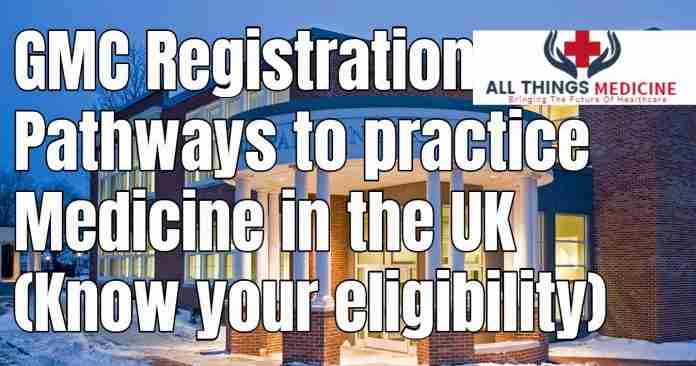
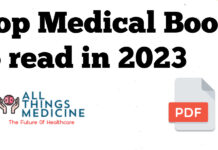
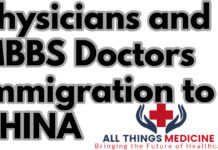
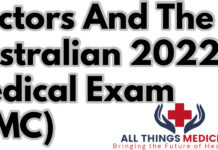

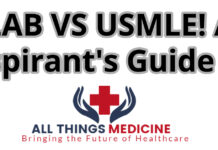
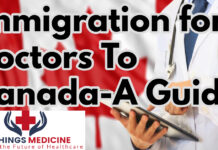





Are postgraduate medical degrees from germany valid in the UK
Sadly no they are not. You have to go through PLAB or MRCP from the start.
interactive